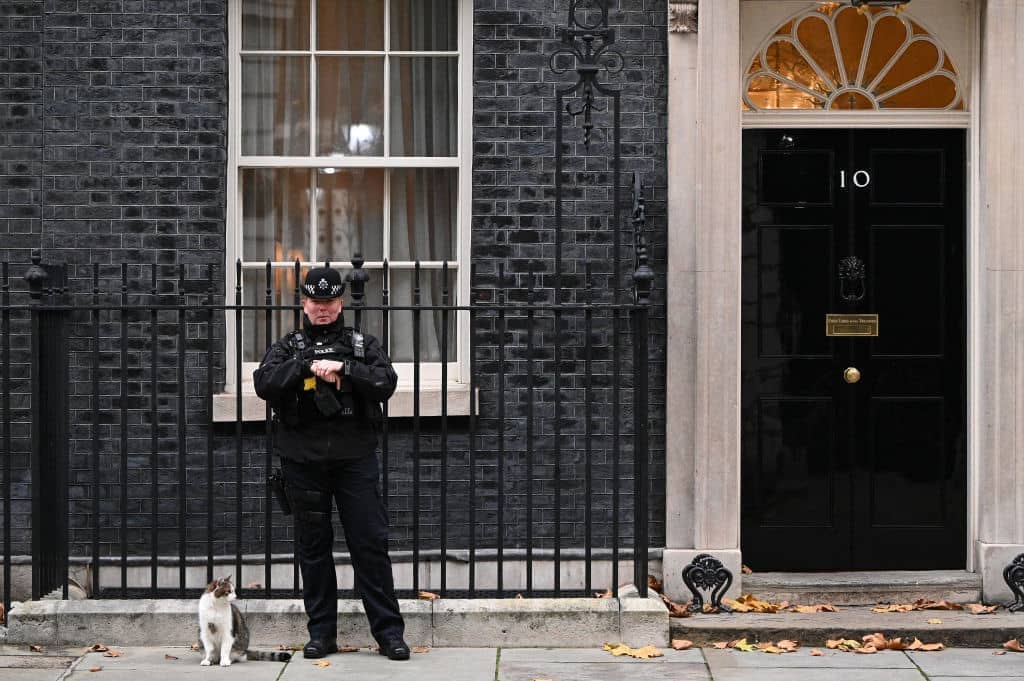In many ways, it has been absurd to have police spend months (and £460,000) investigating birthday cakes, glasses of wine and garden parties. Lord Finkelstein, the Tory peer and commentator at the Times, has come out against it (‘Playing politics is no business of the police’) and the front page of yesterday’s Daily Mail lambasts the cost. I respectfully disagree. If partygate focuses political minds on the wisdom of lockdown rules, it’s well worth it. Keir Starmer and Danny Finkelstein both voted for Boris Johnson’s lockdown laws. If they now find the laws objectionable if used to investigate past offences by politicians: good. That ought to provide cause for reflection as to whether lockdowns were right in the first place – and whether they should ever be repeated.
The partygate investigation has powerfully showcased the absurdity of the draconian, deeply damaging and probably needless laws imposed on the country. Who was there when the cake was sliced? Was the wine opened in a work way, or a party way? Did Keir work after his beer? But the police were ordered, by these parliamentarians, to subject the public to this absurd inquisition – for visiting relatives, talking to friends, being homeless, even organising (and abandoning) a snowball fight. (List here). Danny Finkelstein is one of the columnists I most admire. But had he voted against these laws in parliament when he had the chance he’d be in a stronger position to complain when they were applied to his party leader.
Finkelstein’s specific point is that the police seem to be investigating parliamentarians, but no one else, for offences that took place in the past. So the law is not being applied equally, he says. Again, this is a point that could have been made in Parliament by those voting against lockdown laws: that the police had been given sweeping and badly defined powers.
More importantly, could the police really have refused to investigate the people who made and passed lockdown laws? It would have meant the political class escaping from the regime they voted in. This would create a huge political hazard. In fact, this had already happened
During lockdown, we at The Spectator
heard stories of ministers exempting themselves – flying off on trips at a time when they’d voted to ban anyone else from leaving the country. Having ‘work meetings’ in circumstances that others could not, due to their laws. We spoke to people inside the government who feared a damaging lockdown was being made worse because politicians did not properly experience these rules themselves and were cavalier about extending lockdown. Kate Andrews gathered the evidence and presented it in an article, ‘The Covid divide: there’s one rule for the elite, another for us.’
If fear of investigation stops MPs from voting for a future lockdown, then the £430,000 bill for partygate will be money well spent.
Her point was that rule-dodging is about far more than hypocrisy. If parliamentarians (and their party leaders) are not exposed to the laws they make, then bad laws are far more likely to be imposed on the rest of us. As Kate argued:
‘Politicians have worked out how to circumvent the rules, which perhaps explains why there has not been more pressure to relax them for the rest of society. MPs can organise their own isolation rules, their own trips and even their own parties.’
This is the crucial democratic point. Politicians must – absolutely must – be made to feel the effect of their own laws. For the sake of a healthy democracy, the Metropolitan police absolutely had to investigate everyone in No. 10 who was accused of rule-breaking.
Next time lockdown is proposed in parliament, they may spend more time focusing on (or speaking up for) those wrongly criminalised by badly-drafted, unnecessary laws. If politicians worry about getting fined for rules they rush through at the time, it’s a healthy, vital democratic force. Keir Starmer, who sent his MPs to vote for Johnson’s lockdown laws, will now have plenty of time to reflect if he was right to vote to make it illegal for people to have a beer and a curry with each other after a hard day’s work.
We are only now beginning to discover the extent of the societal damage of these lockdown laws. And what did they achieve? Finkelstein summed up the argument for lockdown:-
The more we relax restrictions, the more people will mix. The more people mix, the more people will get it. And the more people get it, the more people will die.
This is lockdown theory: that lockdown was a too which allowed politicians to increase or decrease social mixing (and, ergo, Covid deaths). It is entirely plausible in theory, but appears not to have been the case in practise. People hunkered down on their own initiative: international data shows not much of a link between restrictions and mixing. As Matthew Parris powerfully argued in The Spectator, the data is now in – and it’s hard to find a link between lockdown policy and Covid death toll.
What interests me is the democratic deficit. Why was lockdown theory not properly explored and pulled apart by parliament when lockdown laws were debated? The flaw in lockdown logic could have been discovered and exposed earlier, had parliamentarians of either house carried their duty of through scrutiny. If the liberty of millions of people were at stake – not to mention the education of children and mental health of adults – then where was the debate? Where was the forensic examination of this draconian theory? Where were the voices of moderation, in either chamber? Our democratic process failed.
The question we should ask now is how to stop this failure of scrutiny ever happening again: ie, a mechanism to keep parliamentary scrutiny alive in times when Opposition supports the government. But instead the question being asked is wht police are investigating politicians rather than just moving on from the whole debacle.
Partygate (and beergate) have ended up packing a bigger political punch than anything else from the lockdown era. There are no columns asking that we find the thousands of children who vanished from school during lockdown, but no end of commentary about this stupid investigation. Politicians tend to focus on things that actually affect them personally: so the partygate investigation is perhaps the biggest single factor stopping MPs voting for lockdown again. I supported lockdown at first, thinking it was worth a shot – if it reduced deaths from 250,000 to 20,000 as Prof Neil Ferguson claimed – then it would have been worthwhile. This theory has since collapsed, and people like me must now re-examine our decision to back lockdown in the light of the evidence.
There will be another Covid variant – and a new pathogen. Another lockdown will likely be proposed. At that stage, those parliamentary power to scrutinise the government are not likely to question the validity of lockdown theory: everyone has moved on rather hurriedly from that awkward topic. But they will remember partygate and ask: if we pass more lockdown laws, might we end up falling foul of them? If fear of being caught in a Boris or Starmer-style investigation stops MPs from voting for another lockdown, then the £430,000 spent by the Met on partygate will be money very well spent.






Comments